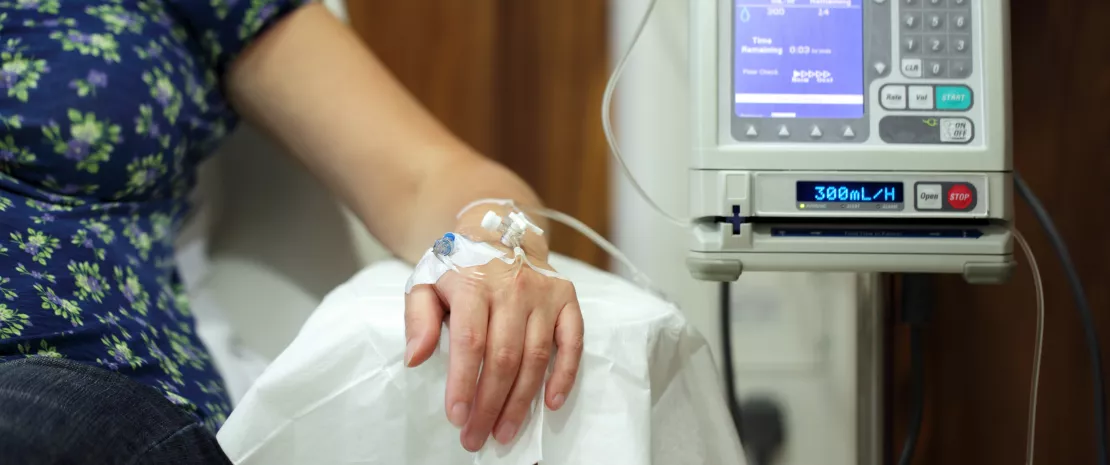Gut microbiota and chemotherapy: adverse effects or better treatment efficacy?
A literature review assesses the links between the gut microbiota and the efficacy and adverse effects of chemotherapy. Details below.
Lay public section
Find here your dedicated section
Sources
This article is based on scientific information

About this article
Chemotherapy has significantly improved the overall survival rate of people with cancer. At the same time, the (sidenote: More than 87% of chemotherapy patients report at least one adverse event. ) related to treatment still have a major impact on patients’ physical (vomiting, diarrhea, constipation, fatigue, hot flushes, etc.) and psychological (depression, insomnia, cognitive disorders, etc.) well-being. Moreover, chemotherapy also suppresses immune responses and increases the incidence of infection and subsequent morbidity and mortality. The gut microbiota is suspected of being associated with both the efficacy and adverse effects of chemotherapy, although few data are available. Hence this literature review, which examined 17 studies ( (sidenote: 5 studies on colorectal cancer, 3 on acute myeloid leukemia, 2 on non-Hodgkin lymphoma, 1 on breast cancer, 1 on lung cancer, 1 on ovarian cancer, 1 on liver cancer, and the remaining 3 on various other types of cancer. ) ) on the relationship between the gut microbiota, chemotherapy and chemotherapy’s side effects.
Microbiota, efficacy and toxicity of chemotherapy
Of the 17 studies reviewed, 7 were observational. Of these, 3 assessed the relationship between the gut microbiota, chemotherapy efficacy, and chemotherapy adverse events using fecal samples collected before treatment. Four other studies assessed the relationship between the gut microbiota, chemotherapy, and adverse events using fecal samples collected post-treatment. The results? The gut microbiota is associated with both the effectiveness of chemotherapy and the occurrence of adverse events.
The ten other studies were prospective (allowing causal links to be examined) and analyzed the impact of chemotherapy on the gut microbiota (risk of infection, diarrhea, etc.) using multiple stool samples taken before, during and/or after treatment. The conclusions? Chemotherapy modulates the gut microbiota of cancer patients. This modulatory effect is associated with an increased risk of infection and impacts the effectiveness of the treatment. In addition, the dysbiosis induced by chemotherapy appears to be related to the adverse events.
Biomarker and modulator
These results have significant implications: the gut microbiota may serve as a biomarker to predict the outcome and adverse effects of chemotherapy, while modulating the gut microbiota during treatment may reduce adverse effects and improve treatment efficacy. These hypotheses are supported by previous studies involving lifestyle interventions such as prebiotics and exercise.
This review of the complex relationships between the gut microbiota and chemotherapy highlights the potential for future research to improve patient care. Further results will require international multicenter trials that control for the various confounding factors (age, ethnicity, gender, co-morbidities, drug use, geography, diet, physical activities, etc.).




